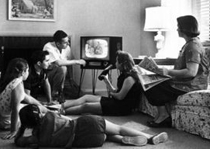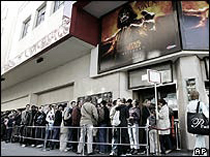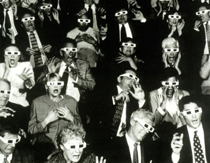How to
teach Audience
Media would not
exist without audiences. Yet the media have to compete for
people’s attention and interest; and finding and
keeping an audience is not easy. Producers might imagine
they know what different groups of people will want, but it
is often hard to explain why some things become popular and
others do not. People also use, interpret and respond to
media in very different ways. A given media text will not
mean the same thing to everybody. Understanding and
reflecting on our own and others’ uses of media is
therefore an important part of media education.

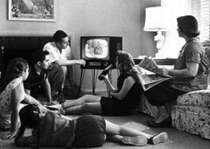
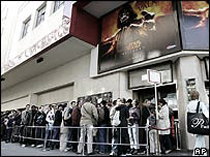


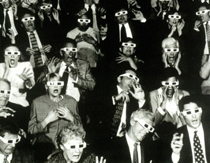
What we are likely to discover is that in order
“to question the media” (to engage with
this interrogative activity), we also have to develop
our own understanding of and position in relation to
the structures of power and subordination in our
societies. It means that we must develop the courage to
interrogate our identities, politically and
psychologically…. How we perceive the
relationship of power and subordination in our
societies will impact considerably on the ways in which
we approach the study and conceptualization of the
audience.
Robert
Ferguson, The Media in Question,
2004
Different people experience
the same media message differently. Audiences play a role in
interpreting media texts because each audience member
brings to the media text a unique set of life
experiences (age, gender, education, cultural
upbringing, etc.) which, when applied to the text-- or
combined with the text-- create unique interpretations.
A World War II veteran, for example, brings a different
set of experiences to a movie like Saving Private Ryan
than any other audience member--resulting in a
different reaction to the film as well as, perhaps,
greater insight.
Even parents and children watching TV together do not
“see” the same program. This concept turns
the tables on the idea of TV viewers as just passive
“couch potatoes.” We may not be conscious
of it but each of us, even toddlers, are constantly
trying to “make sense” of what we see, hear
or read. The more questions we can ask about what we
are experiencing around us, the more alert we can be
about accepting or rejecting messages. Research
indicates that, over time, children of all ages can
learn age-appropriate skills that give them a new set
of glasses with which they can “read” and
interpret their media culture.
Read a summary of
the Key Questions
and some Examples for Students
Source: Buckingham, David: Questioning the Media: A Guide for Students.

